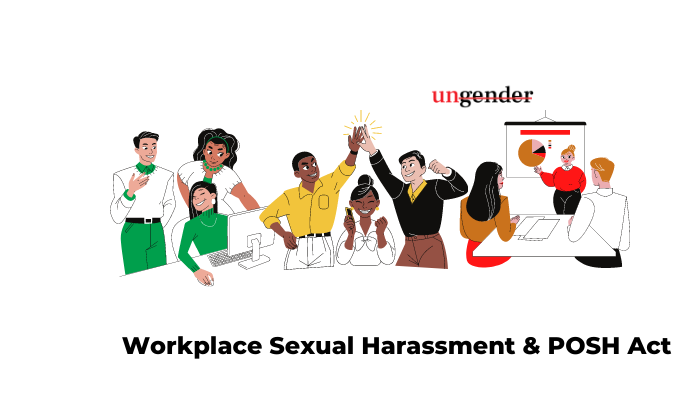POSH This Week: Workplace Sexual Harassment Linked To Suicide Risk

Written by: Rituparna Chatterjee
Every week we bring you a roundup of news and opinion on the Sexual Harassment of Women at Workplace (Prevention, Prohibition and Redressal) Act, 2013, popularly called the POSH Act, from Indian media, focusing on workplace sexual harassment and its far-reaching effect on equality, equity and mental health of employees of diverse gender identities.
Here are five reported stories on POSH in the week of November 16, 2020:
A couple of weeks ago, Human Rights Watch found that “seven years after the 2013 law was enacted, the government has not published any data or information on the functioning or effectiveness of Local Committees that are responsible for dealing with sexual harassment complaints in the informal sector.” Their interviews with women from informal sectors found that the situation remains grim with poor enforcement of the POSH law in unorganised industries.
This week, IANS reported reported findings published in the journal ‘The BMJ’ suggesting a link between workplace sexual harassment and risk of suicide and attempted suicide.
A team of researchers from Stockholm University in Sweden studied 85,205 men and women of working age in paid work who completed a questionnaire between 1995 and 2013 which included questions about exposure to work-related sexual harassment. The team found that workplace interventions focusing on the social side of the work environment could help reduce suicides.
A female consultant who filed a complaint of sexual harassment against director, health, Kashmir, Samir Mattoo, alleging that he made sexual innuendos over the telephone on December 13, 2019, has said that a campaign had been launched to malign her.
The statements of the Doctors Association of Kashmir and the Doctors Association Jammu ahead of an inquiry of sexual harassment have triggered a controversy as the complainant and her lawyers have said those are in violation of the law.
A special court in Uttar Pradesh has ordered a law student who had accused former Union minister Swami Chinmayanand of sexual harassment, to appear before it on November 27, 2020, to record her statements. The student had, through her lawyer, on October 13 last, denied levelling allegations of sexual harassment against Chinmayanand.
A case has been filed against her under Section 340 of the Cr PC for perjury. The woman went missing from Shahjahanpur in Uttar Pradesh last year and later a video surfaced where she alleged rape and sexual harassment by the former minister.
Neha Vijayvargiya writes in The Leaflet, Ungender’s media partner, about a judgment in the trial of Priya Ramani based on the complaint of defamation filed by former union minister MJ Akbar.
“One may envy the judge who is going to deliver the judgment in this case. And then one may not. M J Akbar is none other than a member of the current Indian Parliament. Priya Ramani too is a reputed journalist. It is a high-profile case, and it is also going to be of major significance for the MeToo movement in India. It also requires the judge to find the very fine line between right and wrong here. Any error in judgment can have costly social repercussions. I can almost understand why the last judge who had heard the case for almost two years, suddenly had doubts about his jurisdiction to try this case,” she writes.
Meanwhile, a Junior Engineer in UP’s Irrigation department has been accused of sexually harassing minors. He is below 40 years of age and used to post objectionable videos on the internet after shooting them on his camera. He used to harass children of age group 5 to 16 years. He was presented before the CBI’s special court.
‘Kiran’ — the mental health rehabilitation helpline number 1800-599-0019 — provides early screening, first-aid, psychological support, distress management, mental well-being and psychological crisis management. Please reach out if you feel you or someone you know is in the danger of harming themselves.
Ungender Insights is the product of our learning from advisory work at Ungender. Our team specializes in advising workplaces on workplace diversity and inclusion. Write to us at contact@ungender.in to understand how we can partner with your organization to build a more inclusive workplace.
Read our insights about diversity, legal updates and industry knowledge on workplace inclusion at Ungender Insights. Visit our Blog.
Sign up to stay up-to-date with our free e-mail newsletter.
The above insights are a product of our learning from our advisory work at Ungender. Our Team specialises in advising workplaces on gender centric laws.
or email us at contact@ungender.in




